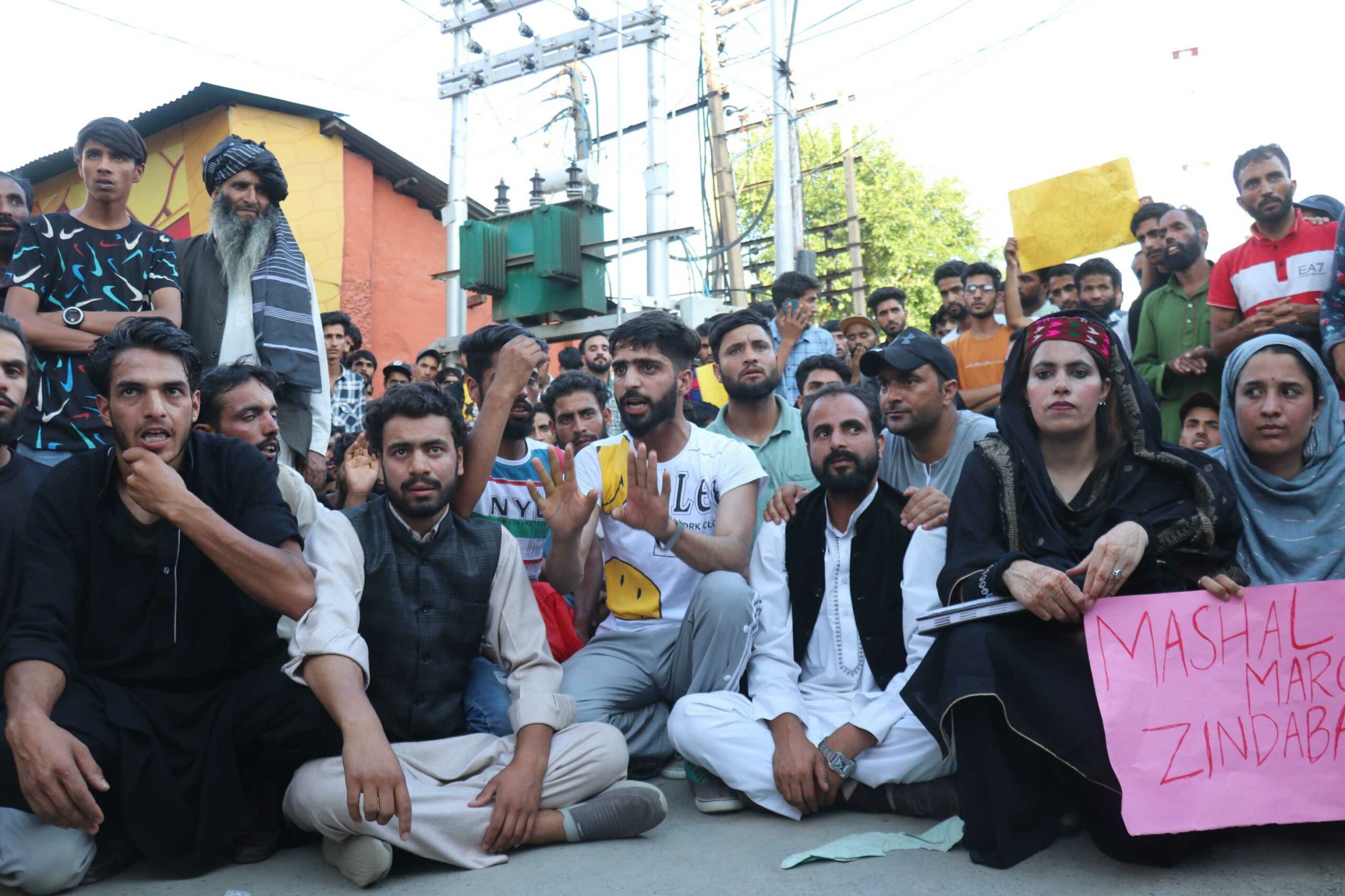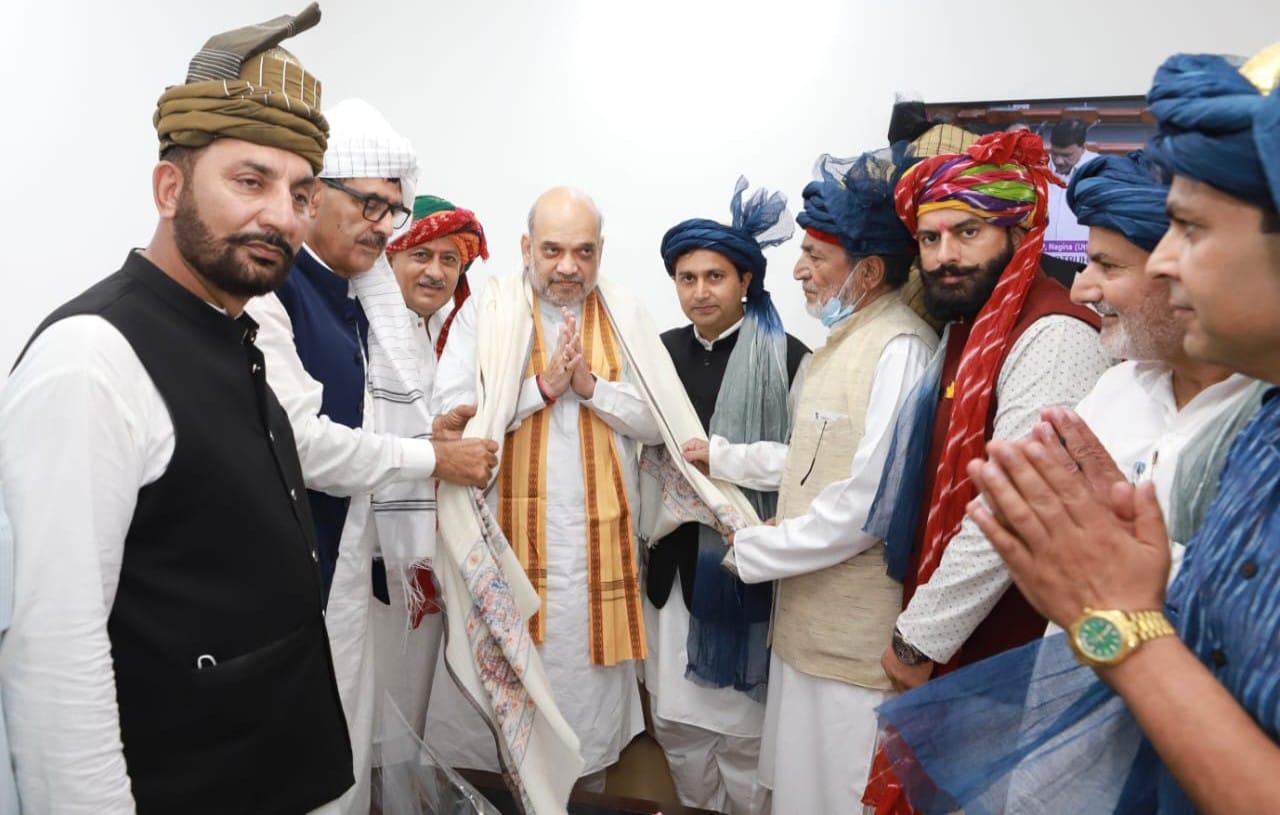Four new bills introduced in the Lok Sabha change the assembly shareholding and the privileges that SCs, STs and the OBC’s enjoy in Jammu and Kashmir, reports Faiqa Masoodi
In the ongoing Monsoon session of the parliament, the BJP government has introduced four major bills pertaining to Jammu and Kashmir. While one bill authorises the Lt Governor to nominate three berths in the Jammu and Kashmir Assembly, three other bills alter the existing reservation quota for SCs and STs. Given the consequences of these pieces of legislation, there is a political ferment in Jammu and Kashmir, with reactions pouring in from all sections of society. The political class sees the bills with the constitutional parameters at a time when the Supreme Court is about to start the hearing of a bunch of petitions that challenge the reading down of Article 370 and the reorganisation. The tussle between Gujjars and Pharais has also gained momentum.
The Jammu and Kashmir Reorganisation (Amendment) Bill, 2023
In 2022, after the delimitation process was completed in Jammu and Kashmir, the number of seats in the assembly increased from 107 to 114. With 24 seats reserved for areas in control of Pakistan, nine seats were reserved for Scheduled Tribes for the first time. In the additional seats, Jammu was given six and one to Kashmir.
The delimitation commission had recommended the reservation of seats for both Kashmiri Pandits and displaced persons from PoJK or refugees, “who have poor representation in the assembly.” The bill proposed to accommodate this recommendation.
“The Act is proposed to be amended with a view to providing representation to Kashmiri Migrants, Displaced Persons from Pakistan-occupied Jammu and Kashmir, and Scheduled Tribes in the Legislative Assembly of the Union territory of Jammu and Kashmir so as to preserve their political rights as well as for their overall social and economic development,” said the statement of objects and reasons of the Bill.
By amending the sub-sections (3) and (10) of section 14 of the reorganization act, the bill paves the way for nominating a man and a woman from the community of Kashmiri Migrants, and one member from DPs from PoK to the assembly. The right to nominate was given to LG. While the amendment to Section 14 will substitute ‘107 seats’ in the Act for ‘114 seats’, Sections 15 A and 15 B will pave the way for the reservation of three seats.
The political class sees the amendments to the Act as part of a larger “disempowering” plan.
“I strongly believe that the move will lead to disempowerment rather than empowering a particular class as the nomination process mentioned in the bill is a flawed one,” PDP spokesman Mohit Bhan said, insisting it will widen the “mistrust between the two communities. “The new method of nominations to the legislature through the LG’s office is utter disregard for the elected government and constitution.”
Bhan said the seat reservation should have been in a way where a Kashmiri Pandit would openly go and seek public votes, “This would not only bring the voter and candidate close but would create a larger platform which would offer a sense of security, trust building thus paving way for return and rehabilitation of larger pandit community.” He regretted that the questionable amendment is being done to a law that is already challenged in the court. “It is an utter disregard to the country’s largest institution (SC)”.
National Conference spokesperson Tanvir Sadiq said they have no problem if the underrepresented get their share but the problem lies in vesting the governor with the power to nominate the trio.

“We have no problem with the representation of underrepresented communities. That was also the logic behind having an upper house which was scrapped under this very reorganisation act. Our opposition is to the proposal of the LG nominating people,” Tanvir said. “This should be the prerogative of the elected government and not an unelected representative of Delhi. In the past, the two reserved seats for ladies were appointed by the Governor, but only with the approval of the elected government.”
Sadiq said that bill is an open admission by BJP that it will lose at the hustings in Jammu and Kashmir and that is why the party is taking the nomination route to get a handful of members. “We have already rejected the Reorganisation Act of 2019, and the entire process is currently under challenge in court. It raises concerns about how the government can proceed with a decision in such haste while it is still being debated in the Supreme Court.”
CPI (M) leader MY Tarigami said that the Central government should have waited for the Apex court’s final verdict before proposing an amendment bill.
“The proposed JK Reorganisation Amendment ( 2023 ) Bill, allowing reservation of seats for Kashmiri Pandits and migrants from PoK is being introduced in the Parliament at a time when the Supreme Court has begun hearing a clutch of petitions filed by the CPI(M) and other petitioners, challenging the J & K Reorganisation Act, 2019 itself,” Tarigami said. “Additionally, the power to nominate the members to the Assembly should rest with the elected government. The government needs to strengthen the displaced communities on the ground.”
Three Bills
There are three more bills in the Lok Sabha that will reshape the quota structure for education and employment in Jammu and Kashmir. The Constitution (Jammu and Kashmir) Scheduled Tribes Order (Amendment) Bill, 2023 will amend Constitution (Jammu and Kashmir) Scheduled Tribes Order, 1989 and add four new groups to the ST list – Pahari ethnic group, Gadda Brahmin, Koli, and Paddari tribe.
After reading down of Article 370, the Delimitation Commission reserved nine assembly seats for the ST population – three in Poonch, two out of five in Rajouri, and one each in Reasi, Anantnag, Ganderbal, and Bandipore. By then, Gujjars and Bakerwals were the only ST in Jammu and Kashmir.
It proved a bait for Paharis, especially after Home Minster spoke publicly. “Elected members of the Pahari community can now become a minister and Chief Minister of Jammu and Kashmir, which was impossible earlier because of dynastic politics,” Home Minister Amit Shah said in Jammu in 2021. Later the party started parleys with the Pahari leaders.
Paharis have been seeking the status for a long time. In March 2020, the government constituted the 3-member GD Sharma Commission (Muneer Khan, IPS, Rupa Lal, IFS were two other members) to look at the issues relating to socially and educationally backward classes, scheduled tribes (ST), and scheduled castes (SC). It submitted its report in 2022 recommending reservations for Pahari-speaking people. The Registrar General of India approved the recommendation, and so did the National Commission for Schedule Tribes (NCST) in the case of the Padri tribe, Koli, and Gada Brahmin communities in the list of STs. Then came the bill.
The move triggered unrest in the Gujjar Bakerwal community. They have already been at loggerheads for a long time. Yet again, they were on roads in Kashmir but mostly in Rajouri and Poonch.
“Tribe cannot be defined on a linguistic basis. A tribe is an ethnic group with all together distinct characteristics and lifestyles. Tribal’s can be defined as per constitution while as Pahari is a very vast term with no particular definition as such,” activist politician, Guftar Choudhary said. “We do not want the inclusion of the elite classes in the Schedule Tribe list as it will be an injustice to the deserving ethnic tribal’s.”
Tribal researcher Javaid Rahi said that as per Census-2011 Gujjar-Bakerwals constitute 16 lahks of the total population in Jammu and Kashmir, which could now be around two million, constituting the third largest majority. Pahari, he said, “is an umbrella term and does not fall in the category of a caste or even a language.” He said the demands for ST was raised by them always but every time it was rejected by the Government of India.
“Before the GD Sharma report was approved by the Government of India, almost five such reports tried to define Paharis. Dr Farooq Abdullah was the first to initiate the process of defining Paharis in 1989 in JK and seek for their inclusion in the ST list,” Rahi said.
After the ST privilege was extended to the Pahari’s, in response the Gujjar Bakerwal Joint Action Committee met Home Minister on November 24. “Amit Shah assured us that our reservation quota will be untouched and the government will find an alternative for Paharis,” he said. “This was in consonance with our demand. However, the youth are now on the streets as they believe that their identity is at stake.”
Zahid Parwaz Choudhary, President Gujjar-Bakerwal Youth Welfare Conference said that as per Lokur Committee tribal’s enjoying ST status fulfils Lokur Committee’s all criteria that define a tribal. BJP is trying to change this set definition by crushing the identity of tribal’s and dilating the group by introducing the elite class into it. He said the Paharis are already enjoying RBS, ALC, OBC, and other reservations. “But even if the Paharis are given ST status, they cannot be given political reservation because the present delimitation was done on the basis of the 2011 census under which Paharis aren’t listed as ST.”
STs and OBSc
By amending the Constitution (Jammu and Kashmir) Scheduled Castes Order, 1956, the Constitution (Jammu and Kashmir) Scheduled Castes Order (Amendment) Bill, 2023 proposes to add Valmiki as a synonym for the Chura, Bhangi, Balmiki, and Mehtar communities in the Scheduled Castes list.

MHA’s Jammu and Kashmir Reservation (Amendment) Bill, 2023 partially redefines “Socially and Educationally Backward Classes” (SEBC) as “Other Backward Classes” (OBC), with the government saying this would also enable the implementation of the 105th Constitutional Amendment “in letter and spirit”. The 105th Amendment affirms the right of governments of States and Union Territories to declare their own subsets of SEBCs
Now, it remains to be seen if at all there is a debate on these bills or if the majority will eventually prevail.

